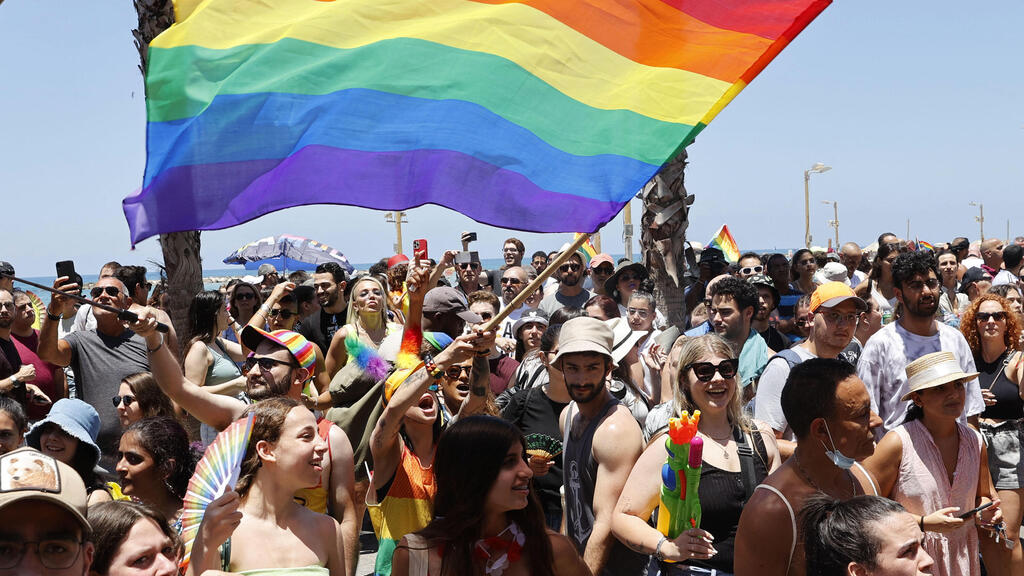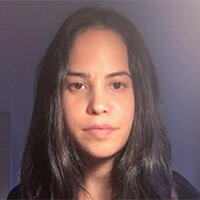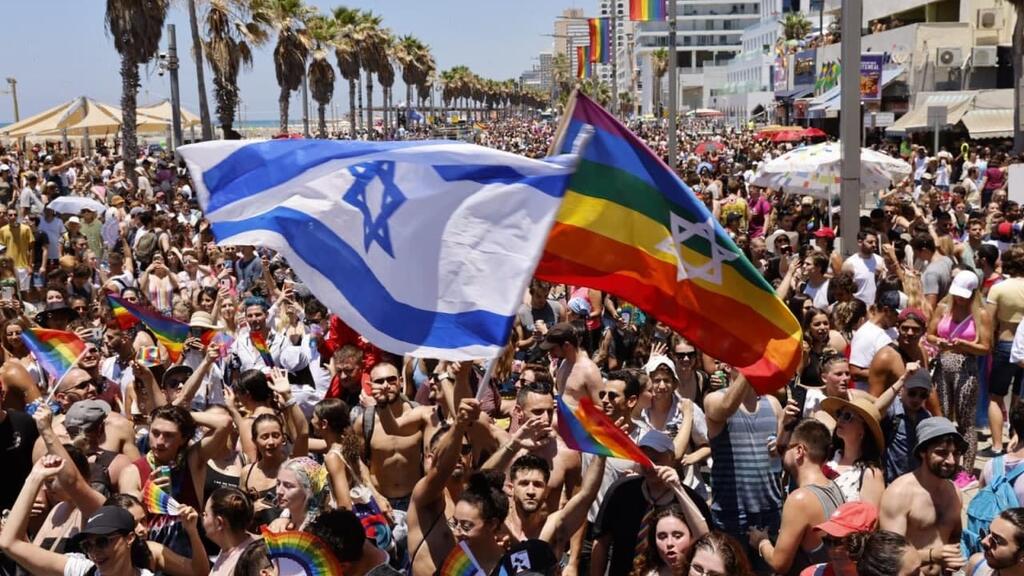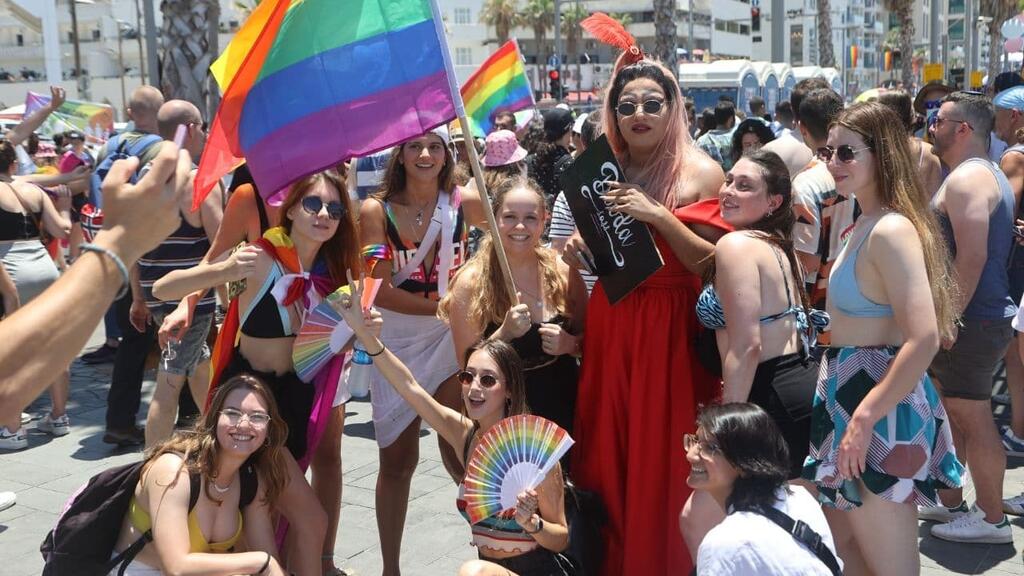Getting your Trinity Audio player ready...
"Aside from tourism, which is a business for everything that generates a lot of money, the gay community is still in the struggle for its existence, for its equality. When the brothers and sisters from abroad come, there is a sense of solidarity and the more fragile the country, the sense of solidarity is also felt among the tourists. They don't just come to have fun, but come because they feel they have an agenda and that they are significant. When they hear on the news that there is a government that might threaten rights and equality, it will not make them cancel their arrival, on the contrary, they feel the need to come and strengthen." This is what Yaniv Waizman, a member of the Tel Aviv Municipal Council, the former holder of the pride and tourism portfolio and the founder of the Gay Youth Organization, said in preparation for the Pride parade that will take place Thursday afternoon in the city.
More stories:
The Tel Aviv Municipality estimates that more than 10,000 tourists from around the world will come to the event, a lower number than last year when, according to estimates, about 15,000 tourists arrived. On the other hand, the Ministry of Tourism has refused to commit to the number of tourists who will participate – this is because the tourists who come to Israel are not asked about their sexual orientation, or about their intention to participate in this or that event. Either way, the Ministry of Tourism believes that the tourists who come to the pride events contribute to the branding of Israel as a country that is open to everyone – and that in itself brings more tourists.
Sarah Selensky, head of the foreign division at the Ministry of Tourism, explained in a conversation with Ynet what characterizes the gay tourist who comes to Israel: "We know that this is a crowd that comes to cities like Paris, London, Amsterdam and San Francisco – these are cities that attract this crowd, liberal and international cities. They like to come to these places and spend money, they contribute financially to the places they go, love nightlife, go to parties, go shopping and love lifestyle. When you look at all these characteristics, there is no doubt that Tel Aviv fits this audience and the vibe of the city is very important to them."
Selensky added that there are several channels through which the ministry works to attract the gay tourist to Israel. "We reach out to them all year round through activities on social networks that include content collaborations with media that are dedicated to this audience. We also bring in influencers and talk to organizers and agents who specialize in packages for this audience, and explain to them which packages are worthwhile and possible to offer. There is a holistic plan here that the peak is the Pride events."
Waizman adds: "What is special here is the local community and the Israeli character. In the end, we are a kind of global periphery and we mobilize to welcome tourists. We get excited when we see tourists on Rothschild, and the gay community in Tel Aviv is very involved, each one considers himself an ambassador. When we did research a few years ago, one of the things we discovered is that proud tourists like to return to Tel Aviv year after year because they feel like they belong and feel at home. They like the vibe, it gives them the feeling that they are coming back, they feel very happy that they came."
On the occasion of the 25th Pride Parade celebrations, the Municipality of Tel Aviv-Jaffa, through the World Tourism Corporation, launched an international tourism campaign to promote the Pride events in the city under the banner "Lights On." The campaign included a video in which the city is seen lit up in the colors of pride for a happy and colorful celebration. The video was screened in several places, including Times Square in New York and central train stations in London.
The parade will be held between 16:00 and 22:00. About 800 police officers and Border Guard soldiers will be deployed in the promenade area in preparation for the parade, in the parade assembly areas and in the streets adjacent to it. The police are preparing for about 70,000 participants.
The parade route will include 1,600 square meters. According to safety guidelines, the complex will be able to accommodate about 60,000 people. If a larger crowd arrives, the police will be forced to limit entrance.
The Pride events will be spread over three days, and on Friday there will be a huge party in Park Yehoshua. The police are preparing for at least 100,000 participants and many Israeli artists – which will attract a large crowd. There will be additional train lines, and the police will secure participants from the time they get off the trains at the stations until they return to the train at the end of the event.
3 View gallery


Over 70,000 people are expected to participate in this year's Tel Aviv Pride celerbration
(Photo: AFP)
Gay Israelis feel discrimination abroad
Global tourism giant Booking.com revealed the most comprehensive study it has conducted to date on gay tourism. Relatiuonships section editor Lori Stadtmauer reports that the data, collected from among 11,555 tourists from the gay community in 27 countries and territories around the world, reveal the growing concern regarding personal safety as an LGBT person in a foreign country, which is a major factor in choosing a vacation location.
As far as Israeli LGBT people are concerned, about 78% reported that they must take into account their feelings of security and mental well-being when choosing a travel destination, compared to 50% last year. LGBT discrimination is also still a major source of concern in regard to the tourism experience as a whole , with 69% of Israelis reporting that they experienced discrimination while traveling abroad. Some 27% shared that they were treated stereotypically, 26% said that other tourists stared at them, laughed at them or verbally abused them, and 22% reported that they experienced threats from local law enforcement officials.
However, 65% of Israeli respondents feel that their experience as an LGBT actually contributes to their sense of security as tourists (an increase from 53% in 2022). A whopping 86% of Israeli tourists and gay tourists say that they experienced some positive interaction at their accommodation and 39 % testified that they received a warm welcome from the accommodation (up from 21% in 2022).
At a press conference it held yesterday in Tel Aviv, Booking.com also presented its Travel Proud program, which was launched for the first time in 2021, and provides free training for staff at accommodation locations to help them better understand the specific challenges faced by the gay community, and to get tools with which they can make hotel guests feel as welcome as possible.
First published: 08:42, 06.08.23




